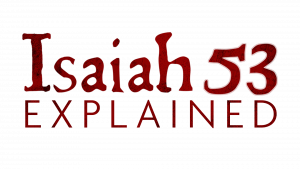My older brother, Alan, was always a seeker after truth. He really upset the family, to say the least, when he came home from the army one weekend with a Bible and some religious literature in his bags. I was about fourteen years old, and I still remember all the shouting and the tears as my mom and dad confronted him.
On one occasion, Alan opened the Bible and asked if he could read a passage of Scripture to me. I agreed to listen. He didn’t tell me which passage, but he began to read from Isaiah 53. When he finished, I said, “Well, that was all about Jesus, wasn’t it? That is in the New Testament, isn’t it?”
Of course, you could have blown me over with a feather when my brother revealed that he had just read from the Jewish prophet Isaiah. He also informed me that Isaiah had written these words 700 years before Jesus lived—yet it seemed so obvious to me that Isaiah was speaking about Jesus!
I didn’t let on how much this had impacted me; I kept it all to myself. I was especially taken aback by the words in verse three: “He was despised, and forsaken of men, a man of pains, and acquainted with disease…” Had we, as the Jewish people, rejected our very own Messiah? How could this be?
It took me several months to fully grasp the significance of these verses and the implications for my life. I knew that believing in Jesus would mean going against all that I had been brought up to believe as a Jew, and I would face much anger and opposition from my family and my people. Yet I could not deny the truth of what I read in Isaiah 53, and I too came to accept Yeshua as my Messiah.



